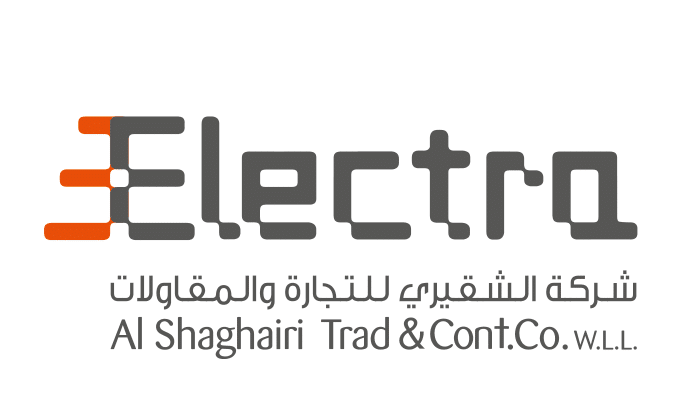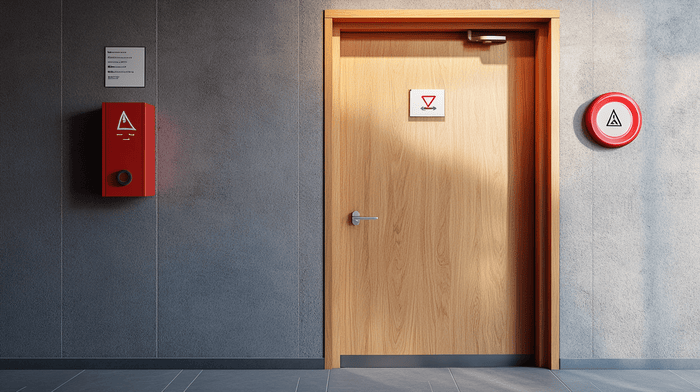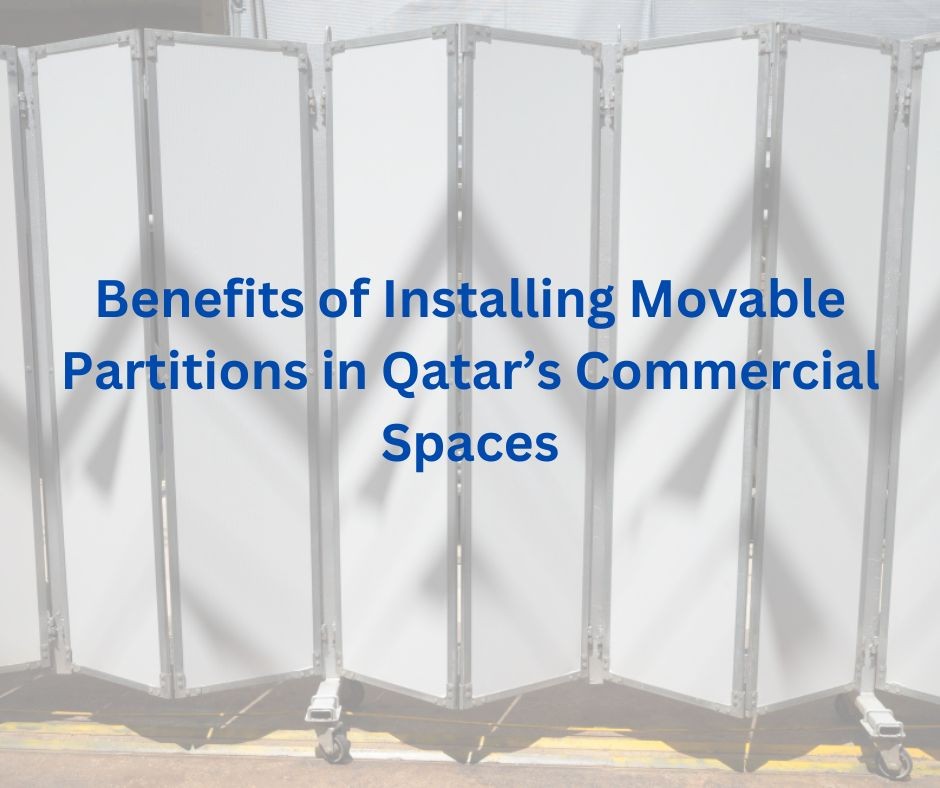CCTV systems are an indispensable tool in the protection of both private and public sectors in the state of Qatar. It is in this context that the Ministry of Interior (MOI) demands a very high level of compliance with the standards of installing, maintaining, and operating CCTV systems. These restrictions target only specific facilities and are intended to improve security, privacy, and consistency of surveillance.
Ensuring MOI compliance is a legal obligation that every company and property owner must make sure they take into consideration. Failing to comply with these rules can result in fines, legal actions, or even permanent suspension of the business. The objective of this guide is to state the MOI laws and present a simple checklist that you can use to make sure that your closed-circuit television set complies with these standards.
Understanding the Regulations Set by the Ministry of Interior
Key Regulations:
- Mandatory CCTV installations: Business premises such as malls, educational institutions, banks,trading showrooms, Production houses/Offices,warehouses(Precious and Non-Precious), and government offices have been mandated to have CCTV systems.
- Equipment standards: Сameras should have at least the minimal required resolution and must be suitable for extended use in the climatic conditions of Qatar. Any active storage device should store recordings for not less than ninety days.
- Placement rules: Camera angles should include capture of all entry and exit points, all around the vicinity, as well as car parks, but should not include change rooms and toilets.
- Footage access and security: The recorded footage must be stored securely and should only be accessible to authorized personnel. Leaks of useful data should be avoided.
- (DSA and DIA )Inspections and approvals: The MOI checks CCTV systems to ensure they meet the required standards and requires re-checks to ensure systems are maintained to standard.
These regulations should be respected at all times in order to ensure that the operations are legitimate and no legal overlaps are experienced that might be pivotal to the disallowance of some operations.
Importance of Complying with MOI Guidelines for CCTV Systems
- Enhanced Security: CCTV systems prevent criminal activities, allow for monitoring in real-time, and provide evidence for a case.
- Legal Compliance: Compliance under MOI guidelines ensures that businesses avoid fines, penalties and even closure associated with non-compliance.
- Operational Efficiency: An effective system should work optimally with a reduced number of failures in order to enhance the entire security operations within the agencies.
- Reputation Management: Employees, customers, and stakeholders see the compliant business as honest and reliable.
- Ethical Surveillance: Strict compliance with the rules helps to avoid compromising privacy while maintaining high security.
Also Read: The Ultimate Guide to Obtaining MOI Approval for CCTV in Qatar
Checklist to Ensure Compliance with MOI Requirements for CCTV Systems
Follow this comprehensive checklist to ensure that your CCTV system meets all the necessary MOI requirements for installation, maintenance, and operation, ensuring compliance with Qatar's security regulations.
1) Proper Placement and Positioning of CCTV Cameras
- Cover high-risk areas: Make sure that cameras are installed to keep an eye on high-risk areas, such as parking lots, hallways, and entry and exit points. These areas should be completely secured without any blind spots.
- Avoid privacy violations: Cameras should not be placed in sensitive areas, including restrooms, changing rooms, or around private residential homes.
- Optimal angles: Ensure that cameras cover the most appropriate parts of rooms and other areas and make sure that they are unobstructed. For a wide view, dome cameras are effective and for a target area, bullet cameras are useful.
- Height and tamper-proofing: Altering the camera's placement at a certain height defeats the purpose of tampering and helps cameras withstand weather conditions in Qatar.
A detailed site survey can help design the best location for cameras, minimizing or eliminating any gap in coverage.
2) Ensuring Proper Storage and Access Control for CCTV Footage
- Fine storage capacity: Install storage devices capable of retaining footage for at least 90 days, as required by the MOI. Backup systems: Set up backup units so that loss of data through hardware crashing or accidental deletion will not happen.
- Access restrictions: Restrictions on access: Only authorized personnel should have access to the footage.Use robust authentication methods such as multi-factor authentication and maintain detailed access logs.
- Data encryption: Secure and encode footage irrespective of whether it is being stored or in transit for viewing, tampering, or interference.
- Audit compliance: Perform e-audits regularly on access trails and storage units to ascertain that the security criteria were adhered to at all times.
Proper storage and access control are essential for protecting sensitive data and ensuring legal compliance.
3) Regular Maintenance and Testing of CCTV Equipment
- Scheduled inspections: Conduct periodic inspections to check for any hardware malfunctions, wear and tear, or environmental damage.
- Clean equipment: Regular cleaning of camera lenses and housings is essential as it can affect the recording quality due to dust and debris.
- Firmware updates: Updates of software and firmware need to be done regularly to fix security vulnerabilities and improve functionality of the device.
- Test functionality: Ensure cameras are able to tilt at desired angles, focus and record clear images, and respond to motion detection if the cameras have that capability.
- Repair and replace: Promptly address any malfunctions or damages by repairing or replacing defective components.
Preventive maintenance ensures that systems work dependably and are also compliant with MOI standards.
4) Obtaining Necessary Permits and Approvals from MOI
The installation of CCTV in any public area requires permission from the MOI. To gain permission from the MOI involves a number of procedures.
- Pre-installation approval(DSA Approval): Take camera locations, camera details, the capability of the system and other informative documents and seek pre-installation permission from the MOI.
- Post-installation inspection(DIA Approvals): Schedule an inspection with MOI authorities to confirm that the installation complies with approved plans and regulations.
- Maintain documentation: Have all the documentation for the permits, licenses, and inspection rulings in one place for ease of reference during screening and reviews of the organization.
- Renewal and updates: If the CCTV system undergoes significant modifications, update the MOI approvals to reflect the changes.
Having a clear understanding of how the approval process works allows you to take the proper steps necessary for compliance.
Learn more: Common Mistakes to Avoid When Installing a CCTV System
Conclusion
For a successful installation of CCTV in Qatar, it is important to comply with MOI for safeguarding purposes, management efficiency, and the legal suit associated contingencies. From the checklist provided, a business will be able to follow rules, enhance security, and contribute toward the respectability and governance of the organization. Adhering to MOI requirements for CCTV systems ensures that your installation complies with Qatar's strict security regulations, safeguarding both your business operations and legal standing.
In the security industry of Qatar, Electra has gained a good reputation for providing flawless and effective MOI compliant CCTV solutions. Electra employs specialist installers, maintenance teams, and support staff to to ensure surveillance systems are installed in compliance with all MOI standards.






